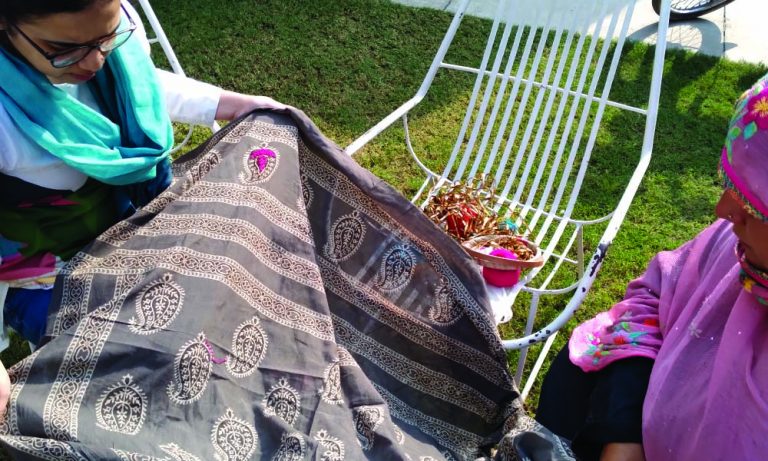ARTISAN STORIES
Ajrak Textile Printing
The unique hand block print textiles are produced in Sindh province (Pakistan) alongside banks of river Indus. The tradition of natural dyeing and printing in this region goes back to 2500 BC where inhabitants of Indus Valley civilization practiced it. The craft is survived today by master artisans who specialize in making hand carved wooden block for stamping and dyeing with natural sources such as plants, vegetables and salts. Bellisimo is honoured to support this cultural practice by actively engaging with tradition bearers in Mityari and Haala( Sindh, Pakistan). We have successfully partnered with master artisans Ustad Yaqoob Soomro, Muhammad Ali Soomro, Muhammad Ishaq and others in creating original Ajrak textiles using indigenous methods of resist stamping and natural dyeing. Through our efforts we have been able to effectively contribute in livelihoods and income generation for families associated with this craft. Our design team has successfully collaborated with artisan led workshop in creating one of a kind signature patterns and products. We share concepts with master artisans, who at their respective facilities materialize ideas in most traditional, ethical and environmentally friendly way. The Ajrak making process involves stamping natural resist with high precision onto fabric surface followed by sun drying, dipping in natural dye and river water. It is repeated multiple times for design detailing purpose and dyeing fabric in required colours. Designers at Bellisimo have paired Ajrak fabrics with other cultural textiles, trimmings and craft techniques such as embroidery and chunri in making our signature Do Darya Shawl that has been a massive hit with South Asian diaspora buyers in North America.
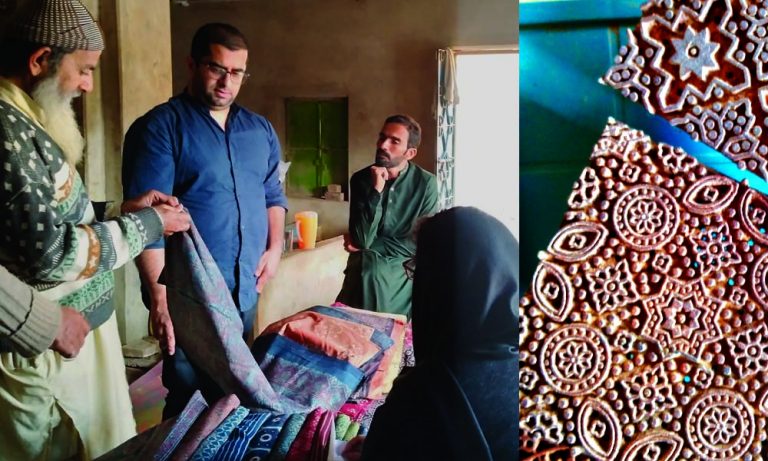
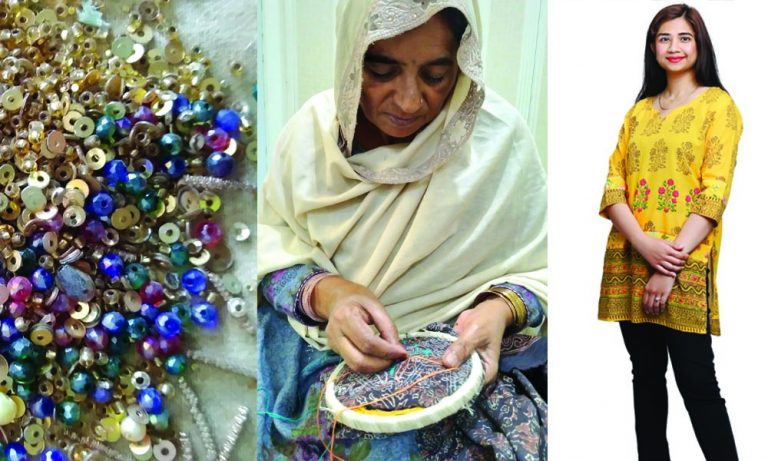
Hand Embroideries
Naqashi Craft
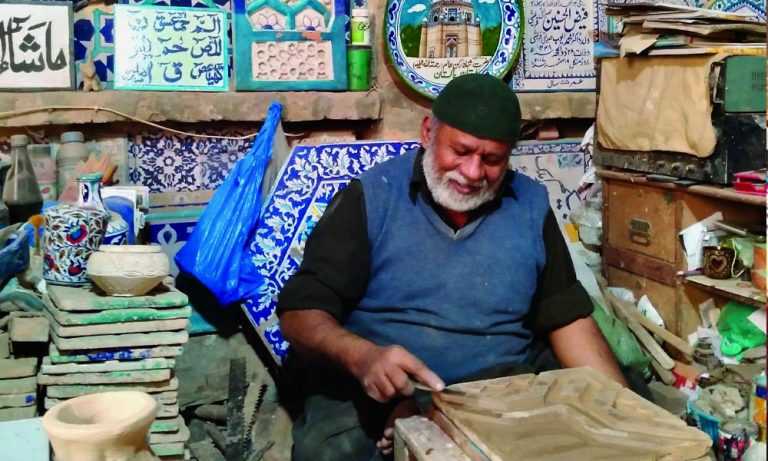
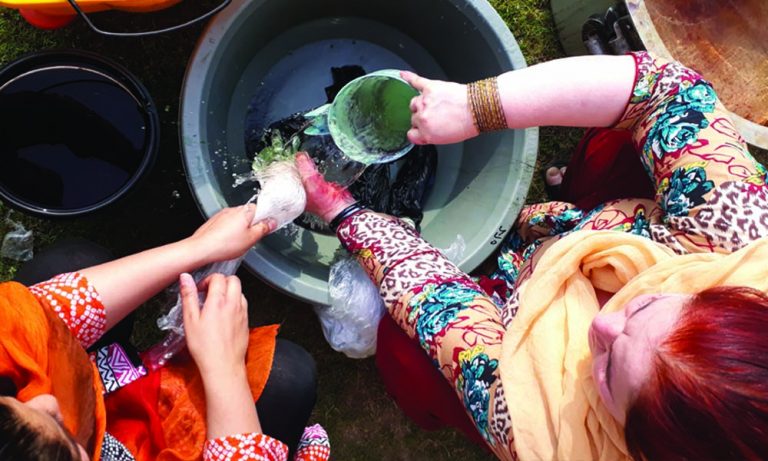
Chunri Crafts
The art of chunri tie-dye is practiced by women in south Punjab region. Over time we have been able to engage families associated with this craft in Bahawalpur, Abbas Nagar and Kehror Pakka . Our collaboration with master artisan Ustad Surraiya Bibi and Ustad Nusrat Bibi paved way for creating signature cotton drapes ‘Do Darya Shawl’ series which is a combination of naturally dyed and block printed surfaces. The collections have been displayed and appreciated in Texas, New York and Atlanta (US). Our endeavour of engaging women led craft practices has massively assisted us in building extensive network and partnerships aiming to provide sustained livelihood and empowerment.
Block Printing
Bellisimo has partnered with block printers in Punjab and Sindh. While artisans in both regions work with different materials, there are similarities in both traditions. Artisans in Sindh predominantly use natural dyes, salts and sources to produce Ajrak fabric (as mentioned above), whereas hand block printing done in south Punjab employs mostly manufactured pigments. Hand carved wooden block is dipped in dye pigment and applied on flat surface resulting in colourful impressions on fabric. The process requires utmost precision and accuracy that is learnt from an early age when an apprentice joins a workshop. It is mostly a family tradition where father and sons work together. Multani block prints have unique motifs, patterns and colours that distinguish it from similar practice around the country. Over time we have produced multi-craft collaborative collections that present surprising yet pleasant amalgamation of craft printing and embroidery techniques.
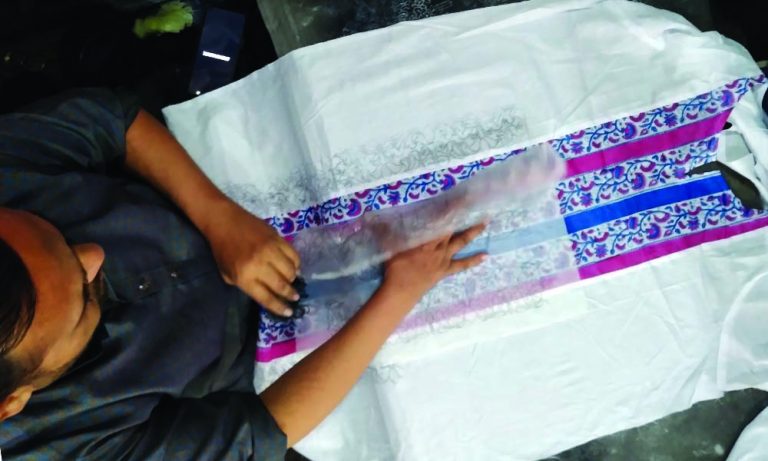
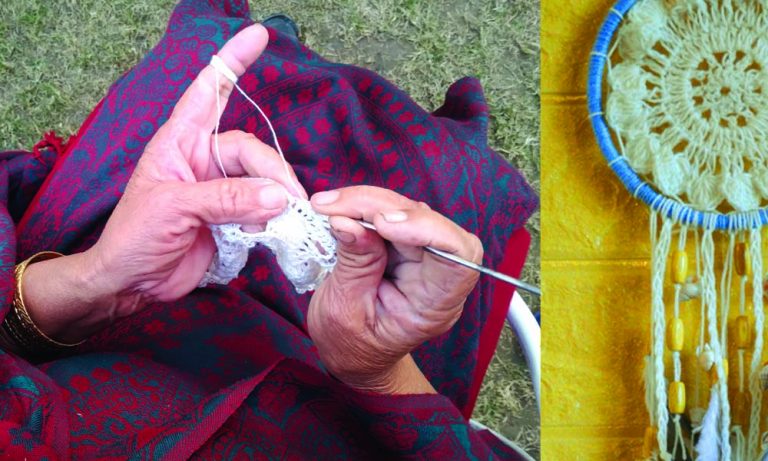
Crafty Crochet
Kashikari Blue Pottery
Our partnership with master artisans in Multan and Hala has helped us in reimagining and design of contemporary products using indigenous materials and techniques. Ustad Muhammad Wajid is a world renowned kashigar/ ceramic artist based in Multan. He comes from family of acclaimed master artisans who have been part of iconic cultural and architectural monuments in south Punjab region. Hand crafted table ware such as tea cups, mugs, ornaments, plates and accessories have been appreciated by our customers globally. Our sales have massively contributed in sustaining the craft by providing livelihood opportunities to the tradition bearers and their families. Bellisimo is honoured to partner with more studios in creating unique and contemporary home accents. Products made at award winner Ustad Alam’s institute in Multan have also been featured at our exhibits.

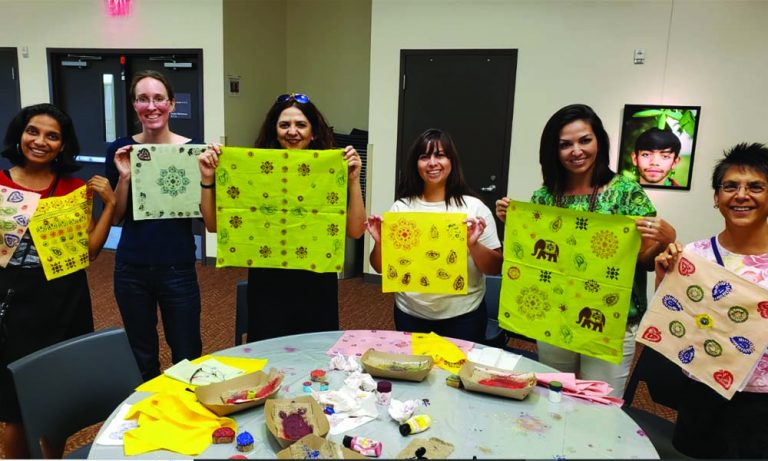
Cultural Experiences
Collaborative Ventures
